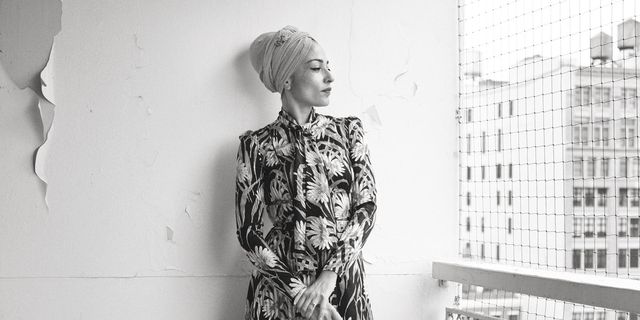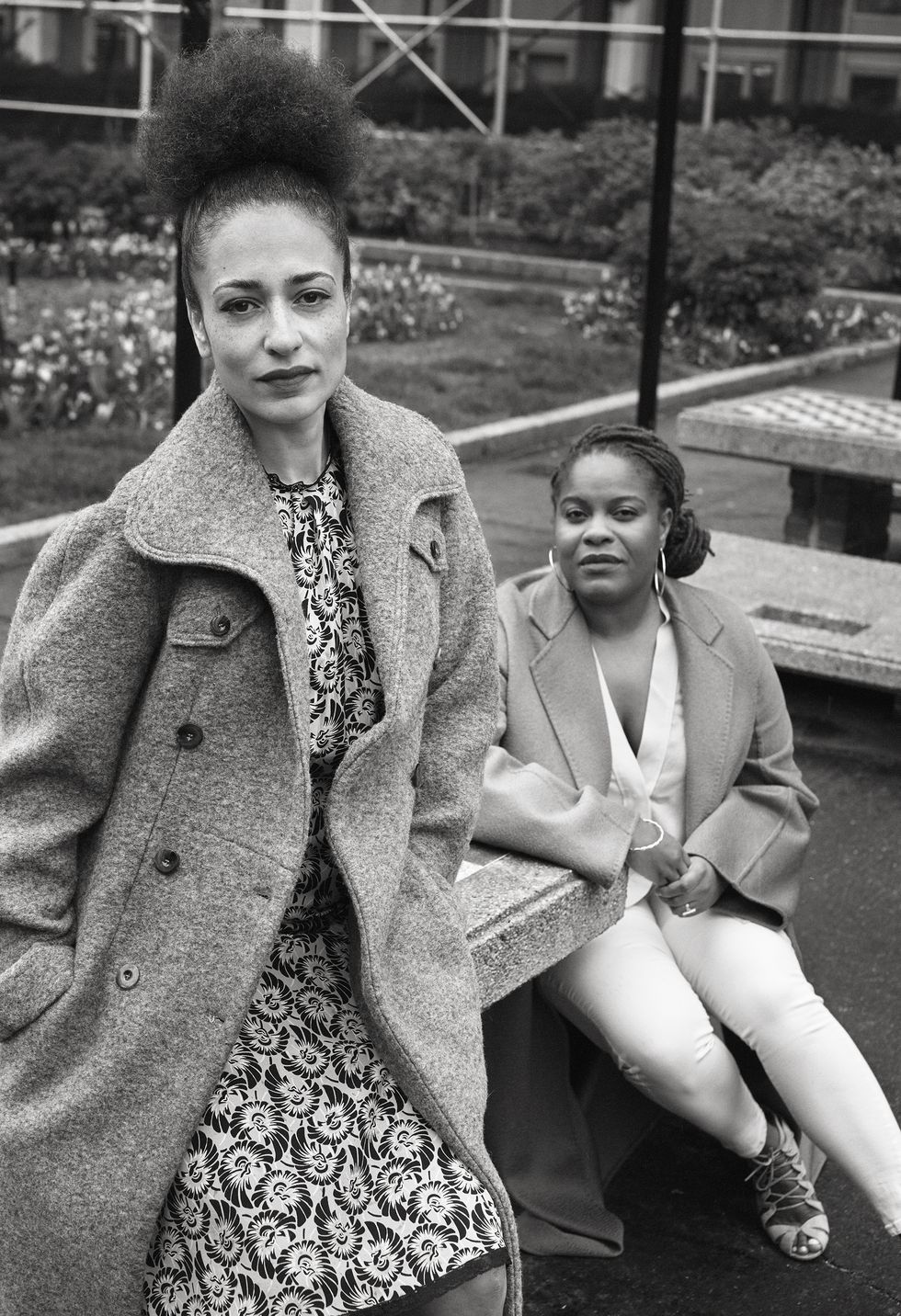Zadie smith, 40, is an award-winning author from London. Here she introduces writer Rachel Kaadzi Ghansah, 34, an essayist from New York
Author of four critically acclaimed novels – the first, White Teeth, was published when she was just 24 – Zadie Smith is currently working on her fifth, Swing Time, about 'two brown girls who dream of being dancers'. Zadie is also an essayist, a teacher for New York University's creative writing programme and her list for 10 Rules Of Writing is a writer's bible. Here she introduces Rachel Kaadzi Ghansah, an essayist for The New York Times Magazine and tells us why her work is so important today.
Zadie Smith: 'Rachel was my student. I was teaching at Columbia University, New York and I was a young, inexperienced teacher'.
All I could think to do was recreate the kind of teaching I'd known as a student: imperious, formal and cold, qualities that don't work in the US. I looked up from my lecture and saw Rachel's head down on the table. She was totally exasperated with me. I learned later her mother is a professor so she already knew that it's possible to impart knowledge in an inclusive way rather than delivering sermons from the mount. She taught me more in that class than I taught her.
'There's an essay of Rachel's about comedian Dave Chappelle that I love called If He Hollers Let Him Go, a sublime title borrowed from Chester Himes' novel. It's a good example of her technique: even if her subject is a superstar, she approaches them as a human being, with a great attention to the detail of their local and historical context. Her writing on black culture has a vertical depth; she writes about the history of African Americans in the US, but it's never dry or academic as there's so much love in it. She loves the people, the details, the landscape, the language. Her non-fiction reads like a rich fiction. It's uncommon to read a voice that mixes anger and joy so beautifully and with so much skill. She doesn't write rants, she writes eloquent, appreciative tirades. If she thinks Kendrick Lamar is a genius she will go to any rhetorical length to convince you of the same. The energy in her writing comes from a place of aesthetic delight.
'We hardly see each other but I email her, especially with any relevant news of Beyoncé, and I'm so delighted by her when I see her. She's always full of enthusiasm for a weird song, a weird book, a weird piece of art; she has eclectic and enlivening tastes. She was the first person I spoke to about the hip-hop group Odd Future. I thought I was pretty fly for knowing about them, but she'd already interviewed them. I'm lucky to know someone as cool as Rachel, even vaguely. She brings news.
'I'm sure she is coolly sceptical of the phrase "black girl magic" [the resilience of black women who persevere in the face of adversity] but some version of that is what Rachel brings to me. I was very affected when I was a kid by a phrase of novelist Zora Neale Hurston's, "The black woman is the mule of the world." This is not the only truth about us and Zora is proof of that: despite all the difficulties, she lived her life with verve, purpose and joy. Rachel's got some of the Zora energy; she walks into a room and it's a kind of event. I've learned from Rachel that black culture is a house with a thousand rooms, with windows looking out on so many views. Her writing is like a high-wire act: Can she pull it off? Are these swirling ideas going to cohere? But they do. I admire her bravery, boldness and attention to the craft. Rachel always understood that to make your writing stand out online you don't need a fancy website, a million Instagram followers or a picture of yourself in a bikini. You just need to write better than everyone else. And she does.'
Rachel Kaadzi Ghansah: 'I write from a very subjective place of being a woman and a woman of colour'.
Our relationship with literature is often domesticated; we aren't supposed to leave our intellectual homes of talking about friendship or raising children. That's important, but we can't dismiss the work we do in the world – questioning, discovering and having relationships with things outside ourselves. Feminism is so basic and self-evident. I'm more radical. I'm a womanist; I'm rooting for women who have been left out of the movement.
'My father grew up in Ghana in West Africa and Peckham in London, and my mother is from Louisiana in the US. I grew up with a single mother and we moved around a lot, which has given me an unwavering sense of wanderlust. I'm a bit of an outlier, which gives me an interesting vantage point. I feel just as African as I feel black American.
'I write about people whom I think are brave, distinct and full of integrity. I'm writing a book at the moment where I take the lives and stories of icons such as Dave Chappelle, Toni Morrison and Serena Williams, and look at how they are self-defining what it will mean to be the outsider in the 21st century. They're complicated figures who teach us about the legacies that follow people around.
I wanted to write it now because this is a moment of watching the outsider strike back. People are asking questions about who they are and how they manage an identity that was forged generations ago. It's a big responsibility to tell a person's story. My book is called The Explainer And The Explorer because that's what a writer does – they take us somewhere. 'Writing is the only thing I could imagine doing. It isn't even a choice, it just is. It's amazing work, but I also have a sense of impending doom about it. Those thoughts are inevitable with anything that requires introspection, quiet and solitude, though. It helps that I don't write for external validation; I just want to do the best I can for me.'














